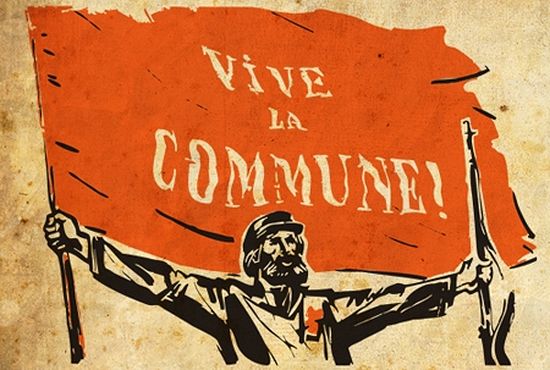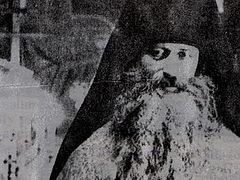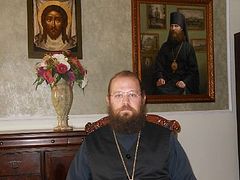Once upon a time the pseudo-science of Marxism used to proclaim that its claims, like death and taxes, were inevitable. In a similar way the supporters of the theory of evolution used to proclaim that it too was the only ‘truth’ that counted, until real scientists pointed out that it was only a theory among many. Similarly, the EU used to proclaim that its aim of a United States of Europe was also inevitable, ‘like a man riding a bicycle you have to carry on towards it, otherwise you will fall off’. Actually if you are cycling (especially towards a cliff edge), you can easily stop without falling off and turn back, which is exactly what the pragmatists of Brexit have done. Modernists also use the same pseudo-scientific argument of inevitability to justify themselves. In a post-modernist world, their argument is particularly absurd and old-fashioned.
Thus, forty years ago I remember a priest of a modernist Western diocese of the old Patriarchate of Moscow (who later defrocked himself, ran away from his wife and then committed suicide) using exactly the same argument. ‘The Catholics had Vatican II, and we will follow them. It is inevitable. We will get rid of the iconostasis, have women around the altar table, have deaconesses, do away with clerical clothing and be modern like the Protestants and then the Catholics. It is just that we Orthodox are behind the others’. I have been reminded of his words recently, as a member of the Paris Archdiocese has said that since one of their priests in Belgium already accepts homosexual ‘marriage’ and that a priest under Constantinople in Finland actually does such ‘weddings’, ‘the rest of the Church will follow’. Inevitability? As in Crete?
A member of the Constantinople Archdiocese in North America has also recently questioned why New York Governor Andrew M. Cuomo was recently given the ‘Patriarch Athenagoras Human Rights Award’. After all, Cuomo is well known for his outspoken advocate of the pro-death (erroneously called pro-choice) movement. On 17 July 2014, Governor Cuomo referred to the defenders of the pre-born child as: “these extreme conservatives who are right-to-life … they have no place in the state of New York.” It seems a strange criticism when two years ago Vice-President Biden, who so lavishly praises the present Patriarch of Constantinople and has also tried hard to further the Church schism in the Ukraine and is another politician who is openly supportive of abortion, also received the same dubious masonic award.
To some it seems that an Orthodox Church accepting everything that liberal Protestantism and liberal Catholicism accept, including homosexual clergy, teenage girls ‘dancing’ around the altar and guitar ‘masses’, is inevitable. After all, they say, ‘we are all subject to the same sociological processes’. Such people, inherently secularist and faithless, have no understanding that this is a typically Catholic/Protestant/Secularist/Western attitude. The Church is precisely the only organism (not organization) that is not subject to ‘sociological processes’ (four Local Churches resisted Crete), but to the processes of the grace of God, processes of the Holy Spirit. If the apostles and martyrs had been subject to ‘sociological processes’, they would have censed the demons (‘gods’) as they were asked to. Instead, they refused – and became saints, the fruits of the Holy Spirit.
The point is that none of the incredible secularization undergone by Protestantism and Catholicism in the last fifty years (or in the previous centuries either) is inevitable. However, this is true only as long as long as we have the Holy Spirit and not empty-hearted rationalism, that is the ‘fleshly wisdom’ of the spirit of the world – and we know who the prince of the world is. As the apostate scholastic Abelard wrote 900 years ago in the Prologue to his work ‘Sic et Non’: ‘The Fathers had the Holy Spirit, but we do not’. For the interest of the apostate descendants of Abelard, the word ‘Fathers’ means ‘the (Orthodox) Church’, in other words: ‘The (Orthodox) Church has the Holy Spirit, but the others do not’. There is nothing inevitable about modernism, just as there is nothing inevitable about any other form of apostasy.





If you read this paragraph, you can see that Abelard is not denying the presence of the Holy Spirit in the Church, but rather is pointing out that the outpouring of that spirit through which the writers of the New Testament wrote is not present in the clergy and bishops of his time. His point is that modern men should read the writings of the apostles and fathers with great respect and care not to "rashly pass judgment."
Abelard was certainly not an apostate.